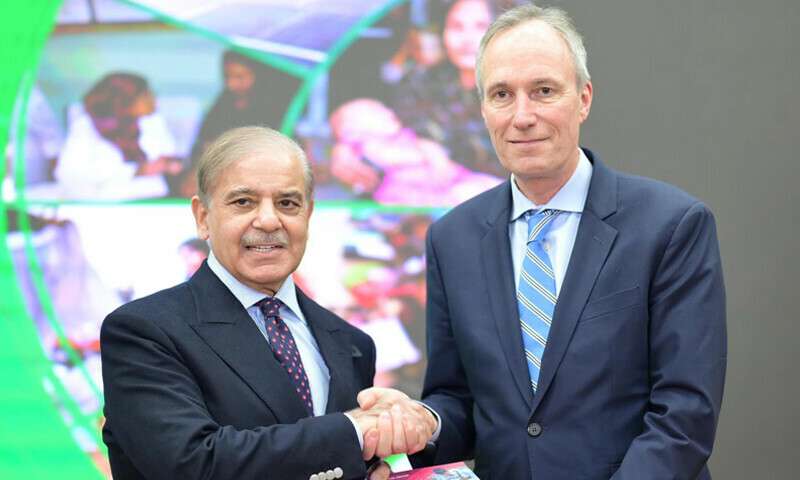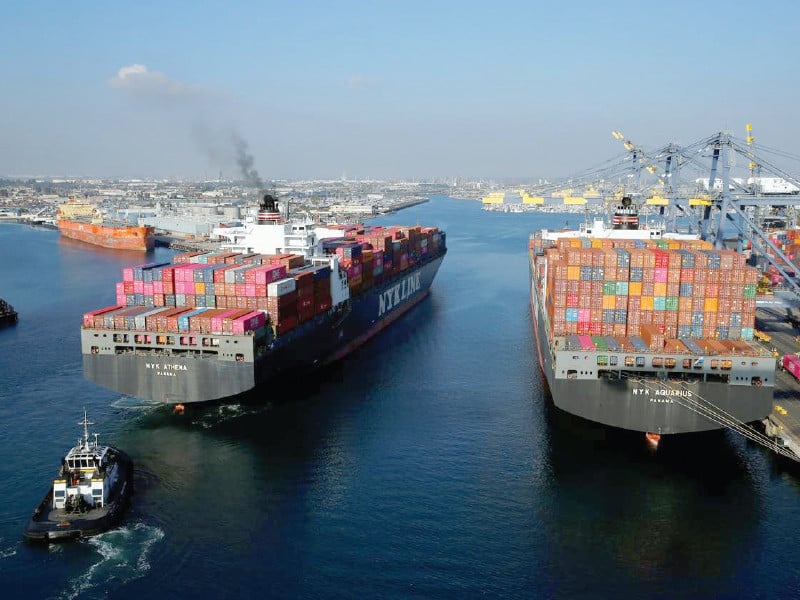Prime Minister Shehbaz Sharif has expressed gratitude to the World Bank for reaffirming its trust in Pakistan by committing $20 billion under the 10-year Country Partnership Framework (CPF). This substantial pledge aims to promote inclusive and sustainable development while addressing key structural reforms in the country.
During a ceremony held in Islamabad, PM Shehbaz highlighted Pakistan’s longstanding partnership with the World Bank and the numerous projects supported by the institution that have contributed to Pakistan’s progress. The announcement underscores the collaborative efforts between Pakistan and international development partners to implement reforms critical for economic growth and poverty alleviation.
World Bank’s Commitment to Pakistan’s Development
New Partnership Framework
The World Bank’s Country Partnership Framework (CPF) sets a roadmap for the next decade, focusing on:
- Human capital development, particularly in education, health, and skills training.
- Private sector growth, aimed at fostering entrepreneurship and innovation.
- Structural reforms, including energy sector improvements and revenue mobilisation.
The partnership reflects the World Bank’s confidence in Pakistan’s evolving economic and governance landscape, with a strong emphasis on inclusive growth.
Support for Structural Reforms
As part of the CPF, the World Bank has pledged to support critical reforms, including:
- Energy sector improvements, ensuring reliable and affordable electricity for citizens and businesses.
- Domestic revenue mobilisation, which aims to increase tax revenues and reduce fiscal deficits.
- Strengthening donor alignment, fostering better coordination between the World Bank Group, the International Monetary Fund (IMF), and other development partners.
These reforms are vital for addressing Pakistan’s long-standing economic challenges and laying the foundation for sustainable growth.
PM Shehbaz Highlights Longstanding Relationship with the World Bank
During his speech in Islamabad, PM Shehbaz Sharif emphasised Pakistan’s enduring relationship with the World Bank and its pivotal role in the country’s development journey.
Key Projects Supported by the World Bank
The prime minister noted several significant initiatives undertaken with World Bank support:
- Hydropower projects in the water sector, which have improved energy security and contributed to clean energy goals.
- Reforms in key institutions such as the Federal Board of Revenue (FBR), which have enhanced efficiency and transparency.
PM Shehbaz also acknowledged the World Bank’s role in financing critical socioeconomic projects aimed at poverty alleviation and education promotion.
Digitisation and Structural Reforms in Pakistan
Federal Board of Revenue (FBR) Digitisation
PM Shehbaz highlighted the rapid progress in digitising the FBR, a key component of Pakistan’s broader reform agenda.
- The pilot project of faceless interaction between importers and customs officials at Karachi Port has already been launched.
- This initiative is set to be replicated across airports and dry ports nationwide, enhancing transparency and reducing corruption.
Economic Impact of Reforms
These structural reforms are expected to yield substantial economic benefits:
- Trillions of rupees in increased revenues from customs duties, inland revenues, and sales taxes.
- Funds generated from these recoveries will be directed toward socioeconomic projects, including poverty alleviation and education.
World Bank’s Faith in Pakistan’s System
PM Shehbaz thanked World Bank Vice President for South Asia, Martin Raiser, who attended the ceremony, along with World Bank President Ajay Banga and the World Bank’s Pakistan team.
He highlighted how the World Bank’s faith in Pakistan is a testament to the country’s progress in implementing deep-rooted structural changes.
“Your presence here is a message to the people of Pakistan that the World Bank has faith in Pakistan’s system, which is now attaining vibrancy and has become functional and operational,” PM Shehbaz said.
The prime minister also pointed out that these reforms were long overdue, but he expressed optimism that it is “never too late” to implement meaningful change.
Socioeconomic Vision and Poverty Alleviation
Addressing Pakistan’s Challenges
PM Shehbaz described the World Bank’s CPF as a timely intervention to address Pakistan’s pressing challenges:
- Economic recovery.
- Socioeconomic inequalities.
- Governance inefficiencies.
The funds pledged under the CPF will play a crucial role in advancing poverty alleviation efforts and providing better access to education for the underprivileged.
Reducing Corruption
The prime minister stressed that digitisation and transparency initiatives, supported by the World Bank, will help reduce corruption and ensure that public funds are used effectively.
PM Shehbaz’s Personal Touch
PM Shehbaz Sharif ended his speech on a personal note by addressing Martin Raiser in German, expressing gratitude for his unwavering commitment to promoting Pakistan’s cause.
The prime minister’s multilingual address underscored the importance of fostering strong international relationships to secure Pakistan’s future.
FAQs
1. What is the World Bank’s Country Partnership Framework (CPF)?
The CPF is a 10-year roadmap outlining the World Bank’s strategy to support Pakistan’s inclusive and sustainable development. It focuses on human capital development, private sector growth, and structural reforms.
2. How much has the World Bank pledged under the CPF?
The World Bank has pledged $20 billion to Pakistan under the CPF to support key projects and reforms.
3. What reforms is Pakistan implementing with World Bank support?
Pakistan is implementing reforms in:
- The energy sector to improve reliability and affordability.
- Revenue mobilisation to increase tax collection and reduce fiscal deficits.
- Enhancing transparency through digitisation, especially in customs and inland revenue systems.
4. How will these reforms benefit Pakistan’s economy?
The reforms are expected to generate trillions of rupees in additional revenues, reduce corruption, and provide funding for socioeconomic projects such as poverty alleviation and education.
5. What role does digitisation play in Pakistan’s reforms?
Digitisation, particularly in the Federal Board of Revenue (FBR), is central to enhancing transparency, reducing corruption, and increasing revenue collection efficiency.



